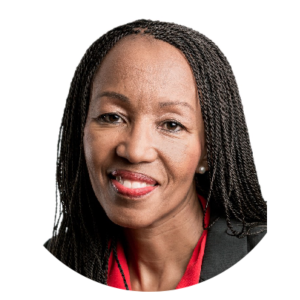Embrace the “I” in Team and Achieve Your Best Results
Yes, combined efforts make it possible to tackle objectives beyond the scope of individual performance, but to achieve your best results, you must embrace the “I” in team and recognise the contribution one person can make towards the broader goal.
Great achievements need combined efforts.
Neil Armstrong, the first man to step on the moon is remembered as achieving one of the most remarkable feats in history. What many of us don’t see though is that an estimated 400 000 people collaborated effectively for years so that Neil could spend 21 hours on the surface of the moon, making it one of the greatest team performances in history.
This achievement becomes so much better when we realise how difficult it can be for even the smallest teams to work together. It’s not just a matter of agreeing and getting stuck into the task, there are human dynamics at play that can threaten the success of our goals.
We need to get teamwork right because our organisational goals are simply not achievable through the brilliant efforts of a few. When we look for answers, we need to ask why some can move effortlessly in unison, while others just can’t get past the first meeting. Is there a sound methodology for teamwork? If so, what does it look like?
A powerful formula for team success.
Patrick Lencioni, Author of The Five Dysfunctions of a Team, explains team success better than most and attributes a unified performance to five critical features.
Trust is the first and single most important element needed to ensure an effective synergy. For employees to give their best in a team setting, their environment must be supportive and free from judgement.
Next up is healthy conflict. It’s through constructive engagement that solutions are forged and refined. Employees need to be able to voice opposing opinions respectfully to improve their ideas.
Commitment is the third building block of team success. When trust is the bedrock and healthy conflict is a regular theme, then employees will be more likely to commit to decisions because they’ll have a fair chance to engage in the process of sharing and deliberation.
Next, accountability emerges. When employees are genuinely committed, they adopt complete ownership of the areas they’re responsible for.
Lastly, focused attention on results is the outcome for those that manage to apply the first four steps effectively. Teams that build good foundations will be free to focus on achieving their goals as a unit.
Self-awareness puts the “I” back in team.
It’s clear that when we work well together, big things happen, but where does it start? It starts with Individual performance, something we need to look at even before we develop a winning team. Employees are vital links in a chain, and they need to be strong and firmly bonded to make an impact as a unit.
The key here is self-awareness, and each member needs to acknowledge their unconscious patterns and how they impact trust, healthy conflict, commitment, accountability, and focused attention on results.
Coaching builds high-performance teams.
Professional coaching initiatives that address Patrick Lencioni’s 5 critical teamwork success factors, develop individual performance, enhance emotional intelligence, strengthen employee synergy, and foster healthy organisational cultures.
When we get the formula for teamwork right, then we can set our sights on the loftiest of business goals and trust that the efforts of many will become one and deliver results when it matters the most.
As a leading provider with 25 years of experience coaching leaders in blue-chip companies and government, Change Partners is perfectly positioned to help you advance.
 Lindiwe Mkhondo is an International Executive Coach and Psychologist at Change Partners with 18 years of experience. Her background and expertise in assessing and fostering transformation make her a highly effective coach. She is deeply passionate about helping individuals and teams achieve their full potential.
Lindiwe Mkhondo is an International Executive Coach and Psychologist at Change Partners with 18 years of experience. Her background and expertise in assessing and fostering transformation make her a highly effective coach. She is deeply passionate about helping individuals and teams achieve their full potential.
Contact her at lindiwemkhondo@change.co.za or on 083 200 8888 to help you take your performance to the next level.

